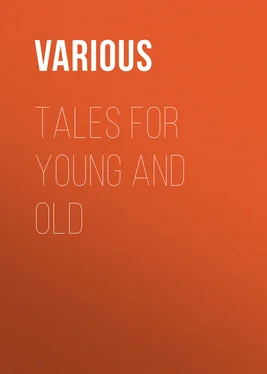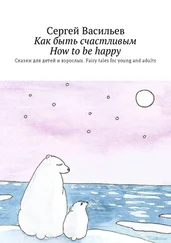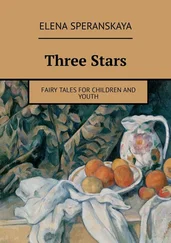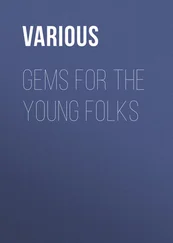Various - Tales for Young and Old
Здесь есть возможность читать онлайн «Various - Tales for Young and Old» — ознакомительный отрывок электронной книги совершенно бесплатно, а после прочтения отрывка купить полную версию. В некоторых случаях можно слушать аудио, скачать через торрент в формате fb2 и присутствует краткое содержание. Жанр: Сказка, foreign_antique, foreign_prose, на английском языке. Описание произведения, (предисловие) а так же отзывы посетителей доступны на портале библиотеки ЛибКат.
- Название:Tales for Young and Old
- Автор:
- Жанр:
- Год:неизвестен
- ISBN:нет данных
- Рейтинг книги:3 / 5. Голосов: 1
-
Избранное:Добавить в избранное
- Отзывы:
-
Ваша оценка:
- 60
- 1
- 2
- 3
- 4
- 5
Tales for Young and Old: краткое содержание, описание и аннотация
Предлагаем к чтению аннотацию, описание, краткое содержание или предисловие (зависит от того, что написал сам автор книги «Tales for Young and Old»). Если вы не нашли необходимую информацию о книге — напишите в комментариях, мы постараемся отыскать её.
Tales for Young and Old — читать онлайн ознакомительный отрывок
Ниже представлен текст книги, разбитый по страницам. Система сохранения места последней прочитанной страницы, позволяет с удобством читать онлайн бесплатно книгу «Tales for Young and Old», без необходимости каждый раз заново искать на чём Вы остановились. Поставьте закладку, и сможете в любой момент перейти на страницу, на которой закончили чтение.
Интервал:
Закладка:
In the meantime, Monsieur Louison had become very uneasy about his wife. He had received no intelligence since she quitted Dresden; for although she had, in fact, written more than once, Mazzuolo had not forwarded the letters. Day after day he had waited in impatient expectation; till at length, unable to bear his suspense any longer, he resolved to start on the road she was to come, in the hope of meeting her. When he reached the gate called the Gozzinger, his carriage was stopped by a berlin containing two men and a woman. It was loaded with luggage; and thinking that this might be the party he expected, he jumped down, and put his head into the window of the berlin, to ascertain if his wife were there. She was not: so, with a bow and an apology, he proceeded on his way. At Meitingen he stopped to change horses; and the first question that was asked him was, if he had seen a heavily-laden berlin, containing two men and a woman. On answering in the affirmative, he was informed that they had gone off with the property of a lady, whom they had left behind, and who was then in the inn; and in a moment more the young husband pressed his bride to his heart. But, eager to chase the thieves, they wasted no time in embraces, but started instantly in pursuit of them. On reaching the same gate where the berlin had been seen, the officers described in what direction the party had driven; and the police being immediately on the alert, the criminals were discovered and arrested just as they were on the point of starting for Vienna.
The ample confession of Karl disclosed the villainy of the Italians, and made known how narrowly the commissary had escaped the loss of his fair young bride; whilst, as he told his rude and simple tale, without claiming any merit, or appearing to be conscious of any, Adelaide learned that to this repulsive stupid clown she had three times owed her life.
The Italians were condemned to the galleys; whilst Monsieur Louison and his wife discharged their debt of gratitude to Karl, by first educating him, and then furnishing him with the means of earning his living with respectability and comfort.
De Monge was degraded from his situation, and the universal execration that pursued him drove him ultimately to America, where, under a feigned name, he ended his days in obscurity.
THE HOME-WRECK
A few years since I visited Devonshire, to make the acquaintance of some distant relations, whom circumstances had prevented me from before seeing. Amongst others, there was one who lived in a decayed family mansion about six miles east of the pretty town of Dartmouth. Before calling on her, I was prepared, by report, to behold a very aged and a very eccentric lady. Her age no one knew, but she seemed much older than her only servant—a hardy old dame, who, during the very month of my visit, had completed her ninety-ninth year.
The mistress never allowed any one to see her, save a young and interesting cousin of mine. She seldom went out except on Sundays, and then was carried to church in an old sedan-chair by a couple of labourers, who did odd jobs of gardening about the house. She had such an insuperable objection to be seen by anybody, whether at home or abroad, that she concealed her face by a thick veil.
These, with other particulars, were narrated to me by my cousin as we rode towards Coote-down Hall, in which the old lady resided, and which, with the surrounding estate, was her own property. On approaching it, signs of past grandeur and present decay presented themselves. The avenue leading to the house had evidently been thickly planted; but now only a few stumps remained to mark where noble and spreading elms once had been. Having arrived at the house, my cousin reined up at the steps of the hall, upon which she, in a low cautious voice, desired me to alight. Having assisted her out of her saddle, I was about to utter some exclamation of surprise at the extreme dilapidation of the place, when she whispered me to be silent; adding, that I must not stir until she had returned from within, to announce whether my visit would be accepted or not.
During her absence, I had full leisure to look around and note the desolate condition of Coote-down. The lawn—thickly overspread with rank grass—could scarcely be distinguished from the fishpond, which was completely covered with water-weeds. The shrubbery was choked and tangled, whilst a very wide rent in the wall laid open to view an enclosure which had once been a garden, but was now a wilderness. For a time the sorrowful effect which all this decay produced on my mind was increased by the extreme solitude which reigned around. This, however, was presently relieved by a cackling sign of life which issued from a brood-hen as it flew from the sill of a side-parlour window. On casting my eyes further into the landscape, I also perceived a very fat cow lazily browsing on the rich pasture of a paddock.
On turning round to view the house, new tokens of desolation were visible. Its shattered casements and worm-eaten doors, with tufts of weed growing at each corner, showed that for many years the front of the mansion had not been inhabited or its doors opened. One evidence of fallen grandeur was highly characteristic—over the porch the family-arms had been carved in stone, but was now scarcely distinguishable from dilapidation: a sparrow had established a comfortable nest in the mouth of the helmet, and a griffin 'rampant' had fallen from his place beside the shield, and tamely lay overgrown with weeds.
These observations were interrupted by the light step of my cousin, who came to inform me that the lady of the house, after much, persuasion, had consented to receive me. Conducting me to the back of the mansion, my fair guide took me through a dark passage into a sort of kitchen. A high and ample 'settle' stood, as is usual in farmhouses, before the hearth. In one corner of this seat reclined a figure bent with age, her face concealed by a thick veil. In the other corner was an old cheerful-looking woman, busily knitting, and mumbling rather than singing a quaint old ballad.
The mistress of Coote-down made a feeble attempt to rise when my cousin presented me; but I entreated her to keep her seat. Having procured a chair for my fellow-visitor (for the old domestic took not the smallest notice of us, but went on with her work as if we were not present), I established myself beside the hostess, and addressed to her a few common-place words of greeting. She replied in a voice far less feeble than I had expected to hear from so decrepit a person; but what she said was no answer to my salutation. She went on with surprising clearness, explaining to me the degree of relationship which we bore to each other, and traced my pedigree till it joined her own; continued our mutual genealogy back to the Damnonii of Cornwall, hinting that our ancestors of that period were large mining proprietors, who sold tin to the Phoenicians! At first she spoke with doubt and hesitation, as if she feared to make some mistake; but the moment she got to where our branches joined—to the trunk, as it were, of our family-tree—she went on glibly, like child repeating a well-conned lesson. All this while the old attendant kept up the unceasing accompaniment of her ballad, which she must have sung through several times, for I heard the first line—
'A bailie's daughter, fair was she'– at least thrice.
Though I addressed several questions to my singular relation, she made no attempt to answer them. It seemed that what she had uttered was all she was capable of; and this, I learned afterwards, was partly true. Circumstances of her early life had given her a taste for family history, particularly that of her own, and her faculties, though otherwise impaired, still retained everything relating to what concerned her ancestry.
On our way back from this singular scene, my cousin remarked that it had saddened me. 'It would sadden you more,' she continued, 'were you to know the history of the domestic wreck we have just left behind.'
Читать дальшеИнтервал:
Закладка:
Похожие книги на «Tales for Young and Old»
Представляем Вашему вниманию похожие книги на «Tales for Young and Old» списком для выбора. Мы отобрали схожую по названию и смыслу литературу в надежде предоставить читателям больше вариантов отыскать новые, интересные, ещё непрочитанные произведения.
Обсуждение, отзывы о книге «Tales for Young and Old» и просто собственные мнения читателей. Оставьте ваши комментарии, напишите, что Вы думаете о произведении, его смысле или главных героях. Укажите что конкретно понравилось, а что нет, и почему Вы так считаете.












